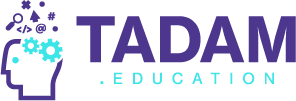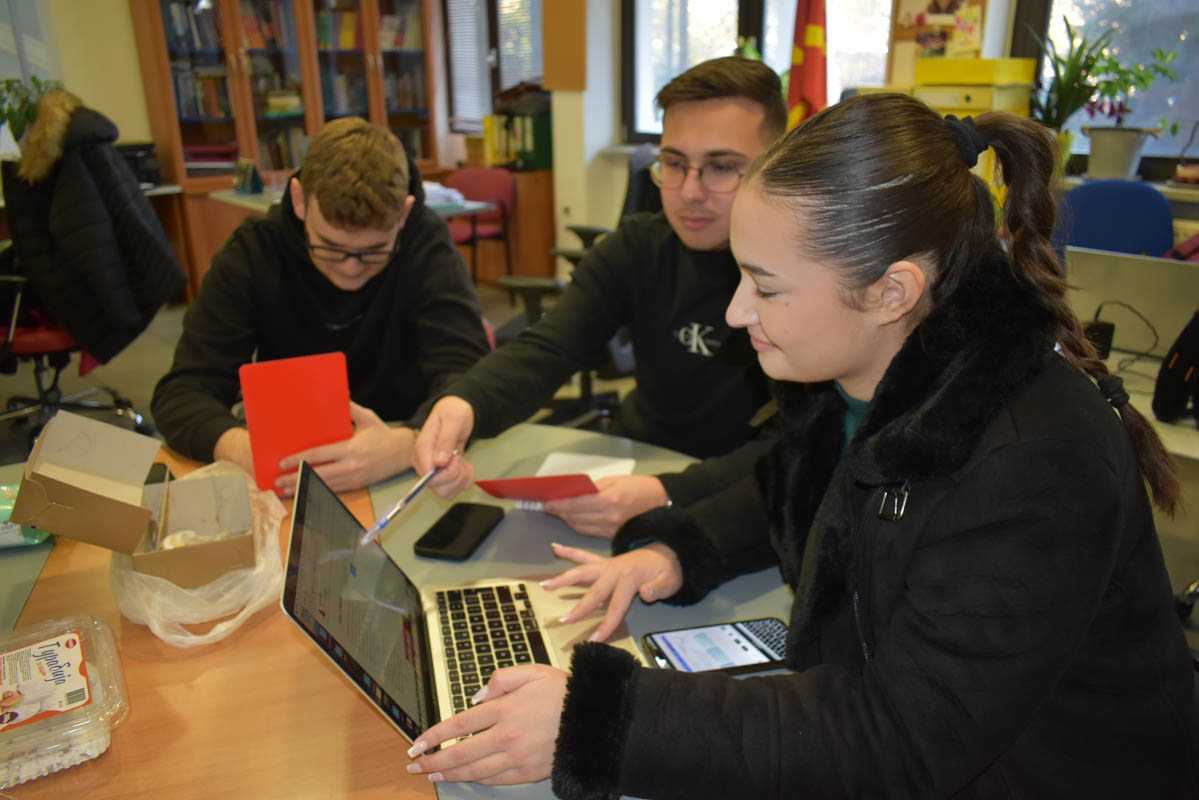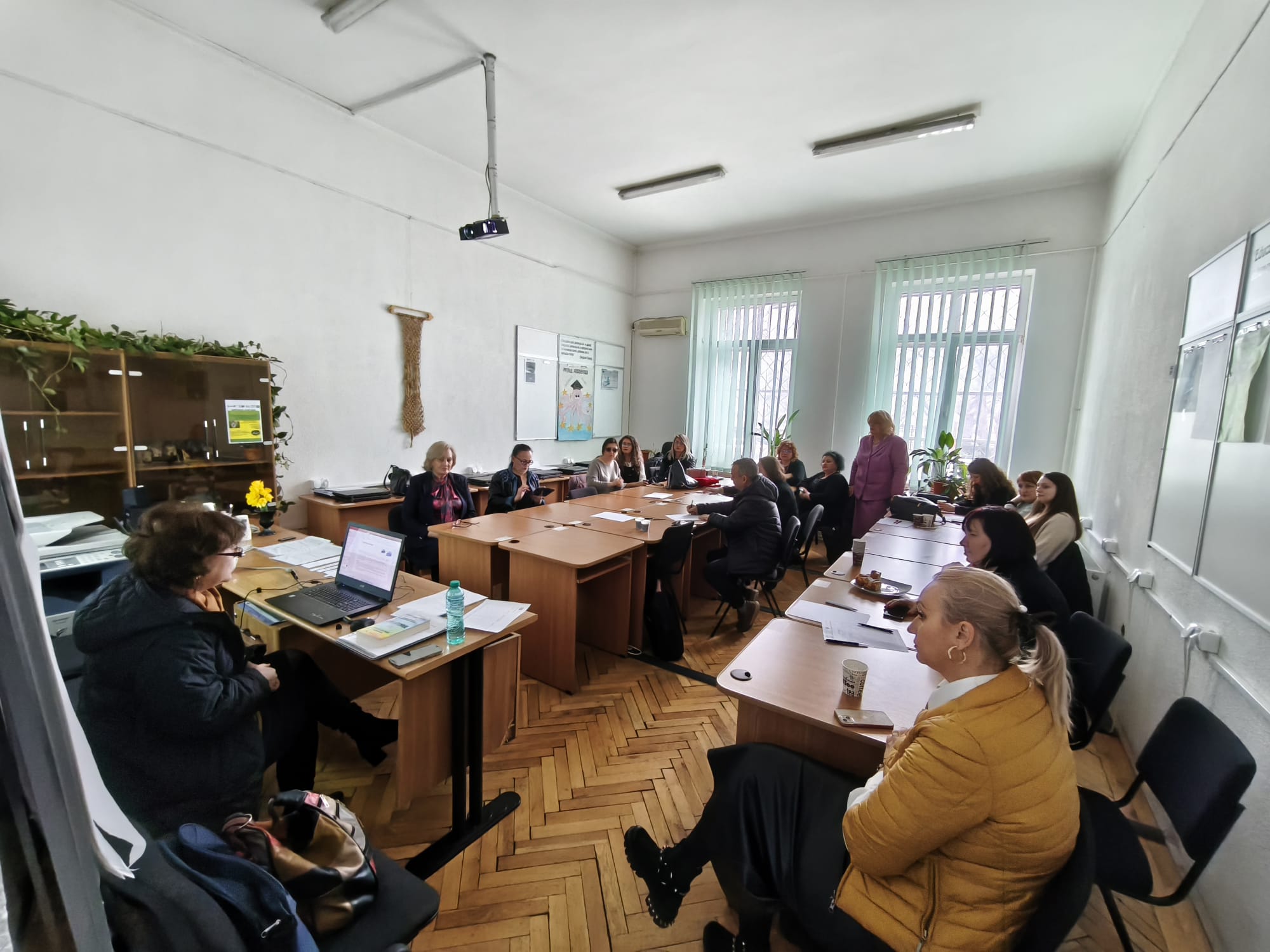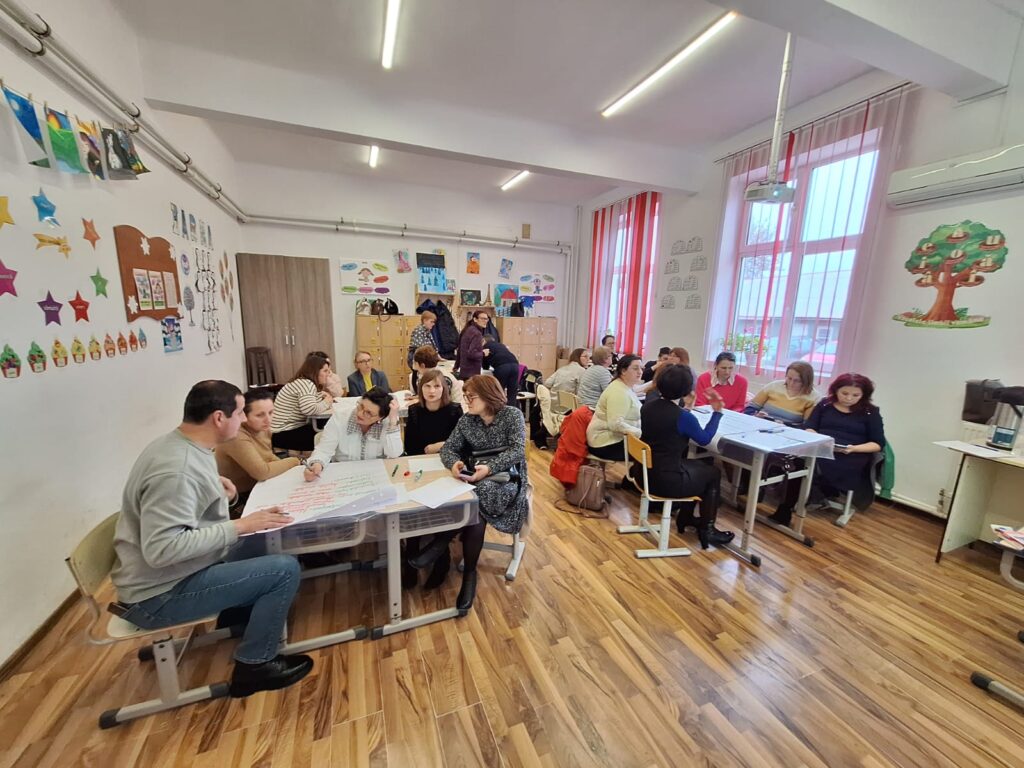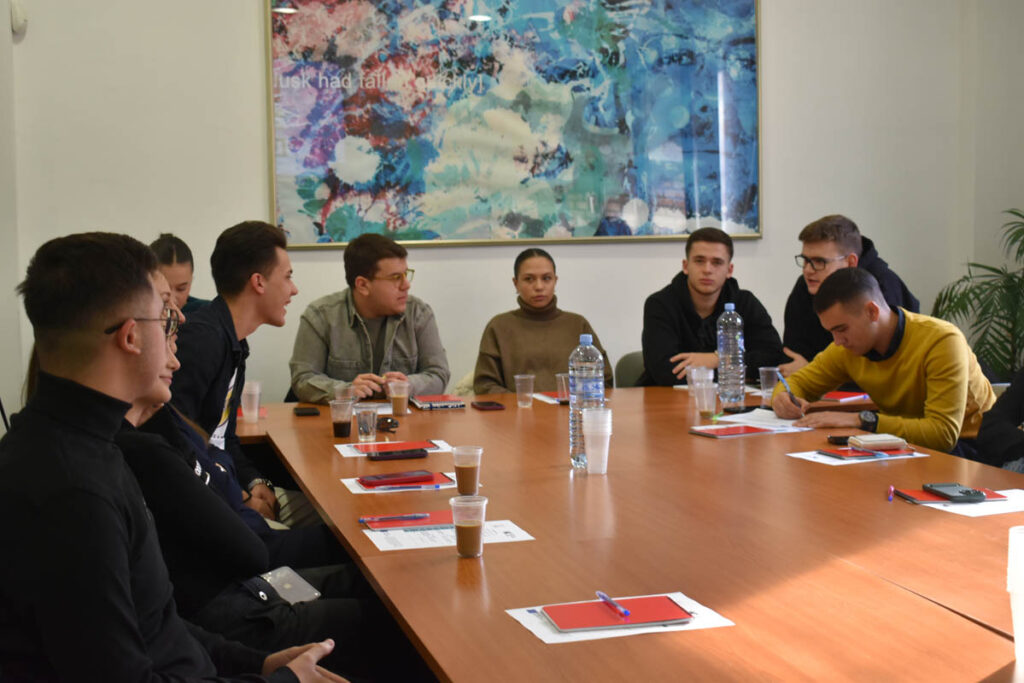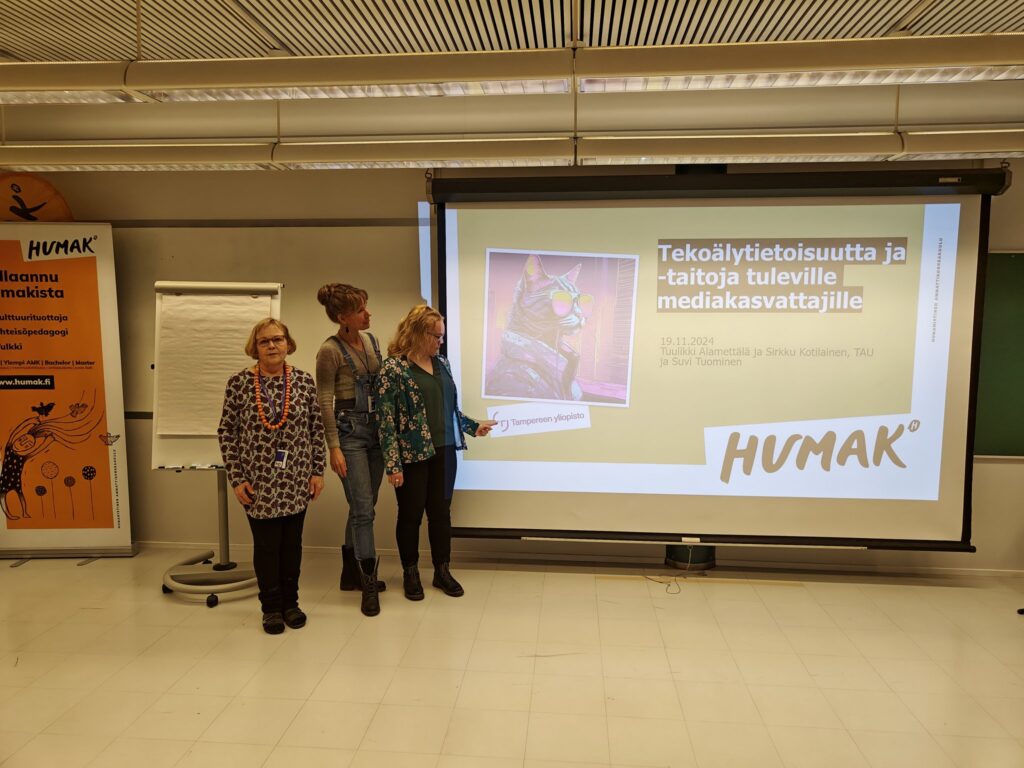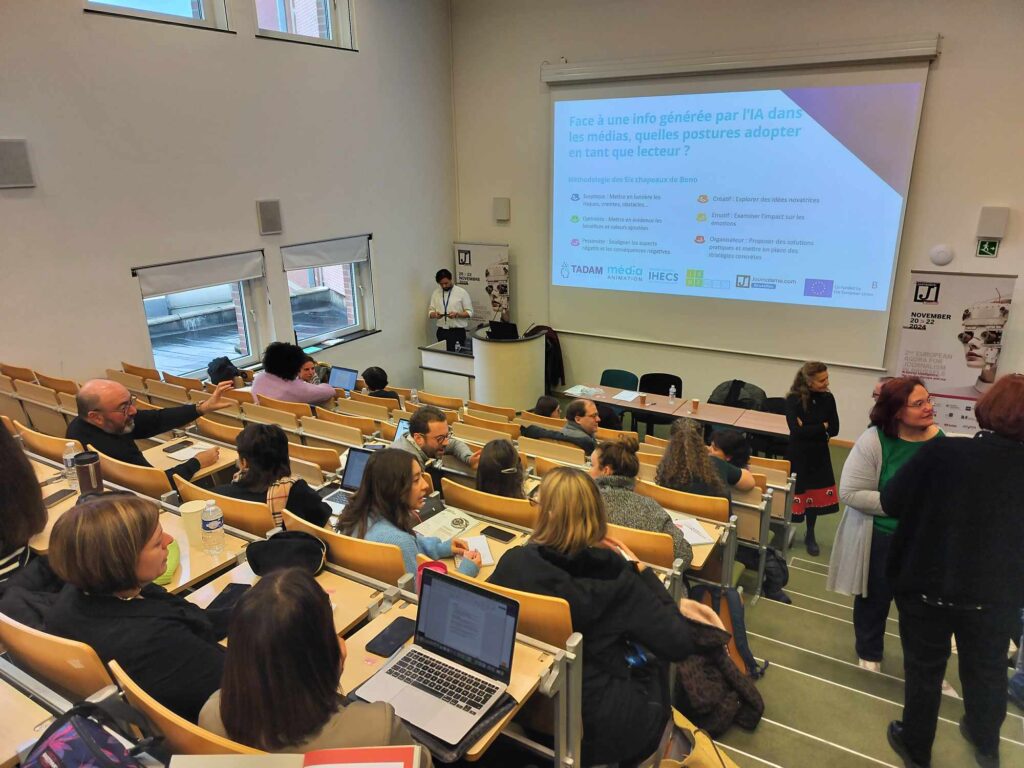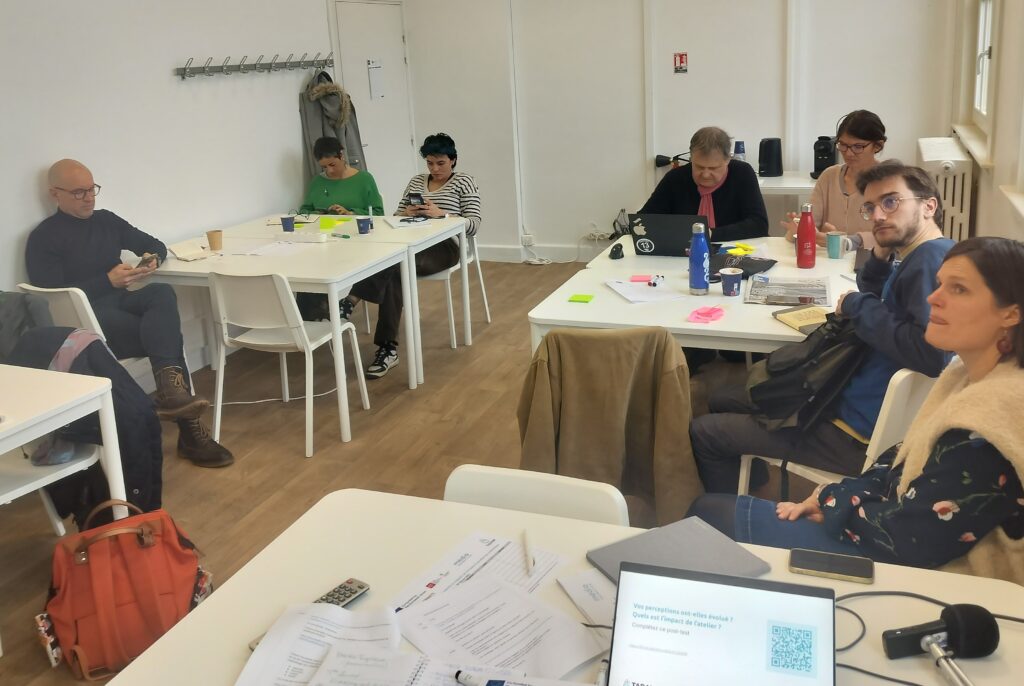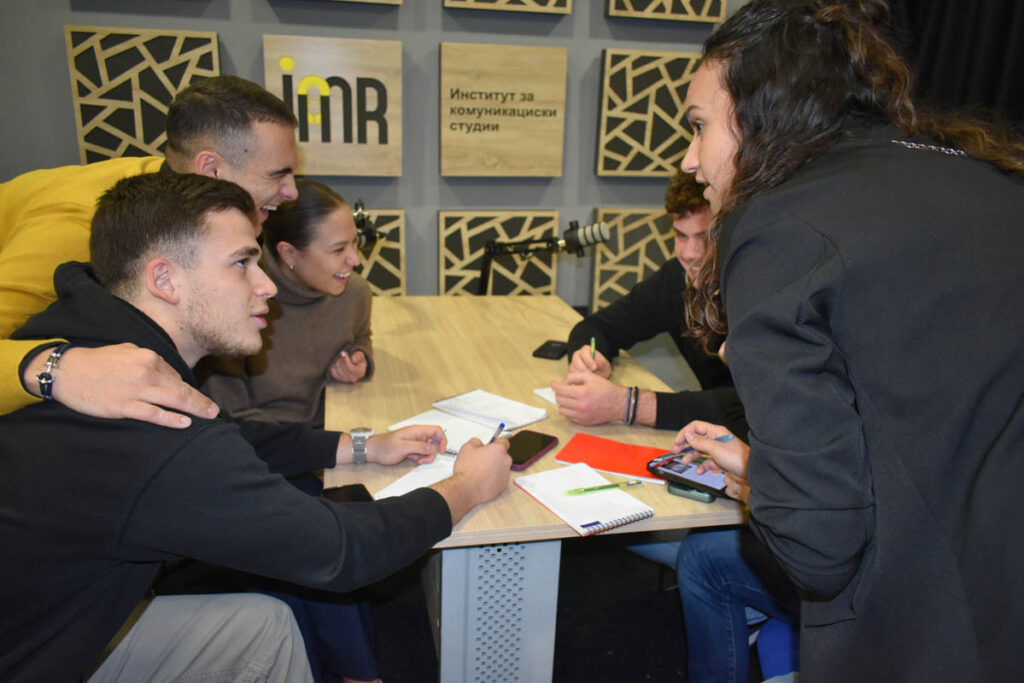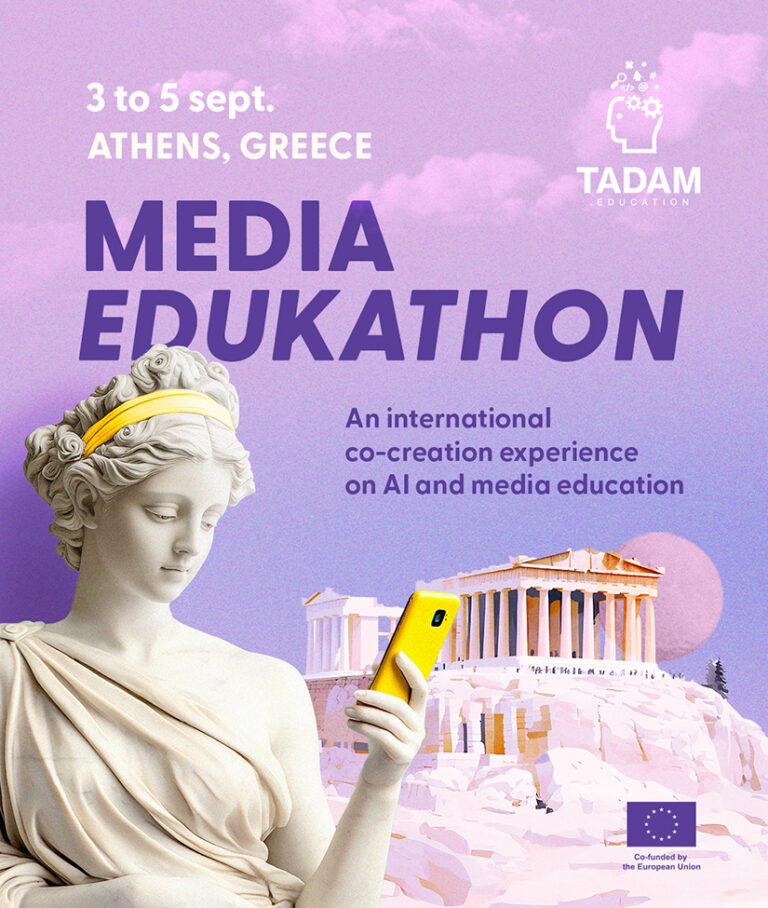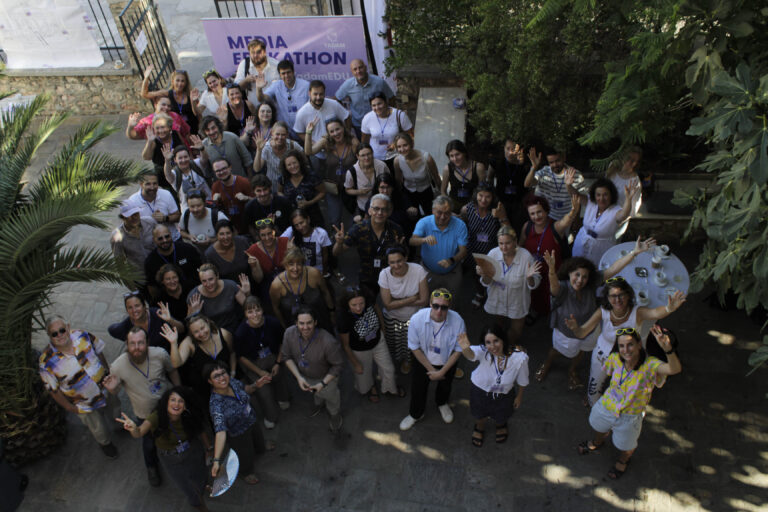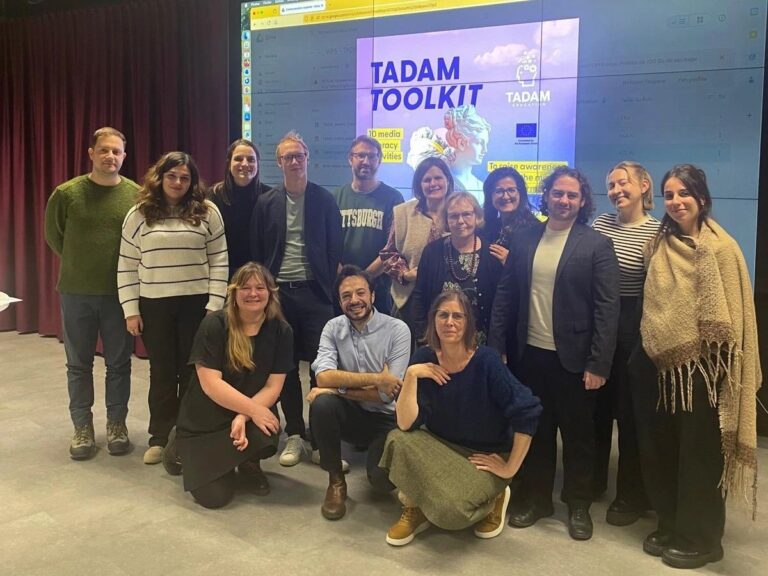More than 500 participants took part in the TADAM regional workshops
From October 2024 until March 2025, the TADAM project focused on the decentralization phase through the organization of regional workshops centered on media literacy in relation to artificial intelligence (AI) and algorithms. A total of 22 regional workshops were conducted across various European locations, involving different countries including Italy, Belgium, Greece, Finland, France, Macedonia, Montenegro, Serbia, Sweden, and Romania. It represents a total of 511 participants who took part to a Tadam workshop, with the following distribution by type: Students: 28% (14% Education, 14% Media) ; Educators/Teachers: 36.8% ; Media Professionals: 25.2% ; IT Professionals: 7.3% ; Others: 2.7%.
The decentralization phase was designed to deepen and apply the priority themes identified during the Initial Seminar of June 2024, adapting them to local and regional contexts through participatory workshops :
Priority 1 – Reflecting on AI’s Positive and Negative Roles in Media Production
Priority 2 – Addressing AI-Generated Biases and Ethical/Deontological Implications
Priority 3 – Developing Skills as a Critical AI Prompter (in Media Reception and Production)
Priority 4 – Evaluating Audience Perception/Awareness/Emotions Regarding AI Outputs
Priority 5 – Creative Prompting and AI Training
To guide the consistent implementation of regional workshops, UNIFI developed a comprehensive methodological framework based on several theoretical models:
- David Merrill’s principles of instructional design, focusing on practical workshops that apply real-world tasks and problem-solving activities to facilitate learning.
- John Dewey’s experiential learning theories, which emphasize the importance of learning through experience, particularly in hands-on, practical workshop settings.
- The Delphi method, employed for workshops addressing key challenges, encourages structured communication among experts to explore complex issues and forecast potential solutions.
In designing and implementing regional workshops, four key elements were considered:
- Territorial needs: each region presents distinct socio-cultural, linguistic, and economic conditions that require tailored approaches.
- Prior knowledge of the target audience: the level of knowledge and experience of the audience influenced the educational objectives and content of the workshops.
- Target group: mainly media/IT professionals and media educators, with distinct professional needs.
- Context and stakeholders: the involvement of relevant local stakeholders (media organizations, educational institutions, policy makers) to ensure a comprehensive understanding of the local media landscape and educational needs.
The feedback collected shows a significant impact on participants, with an increase in awareness and skills related to AI and algorithms in media. Furthermore, the workshops facilitated knowledge exchange between professionals from different sectors, promoting a cross-sectoral approach to media literacy.
The decentralization phase enabled the collection of significant evidence on the use of Artificial Intelligence (AI) in media and educational contexts through sixteen regional workshops held in various European countries.
The phase successfully achieved its objectives, involving a significant number of participants from different sectors and European countries. The workshops allowed for the collection of local good practices and the co-design of innovative educational strategies, thus contributing to the creation of a European community of practice on media literacy.
It also has demonstrated the importance of adapting methodologies to local contexts while maintaining a coherent framework. The bottom-up approach has proved effective in engaging stakeholders and gathering relevant insights from the field.
Based on the experiences and outcomes of the regional workshops, several recommendations have emerged for future initiatives focused on media literacy in relation to AI and algorithms. These recommendations, derived from workshop reports, participant feedback, and partner reflections, aim to enhance the effectiveness and impact of similar future endeavors.
Content and approach
- Specialization focus: workshop feedback suggested more specialized content on topics like “avatar making/animated character generation” and “applications on Art and Films/AI drawing collage.”
- Practice-focused design: Allocate substantial time for hands-on activities.
- Stronger moderation: Multiple workshops highlighted the importance of skilled facilitation.
Thematic priorities
- Ethical dimensions: Place greater emphasis on ethical considerations and potential societal impacts of AI use in media.
- Visual content focus: some participants specifically recommended to “focus on visual content: organize specialized workshops on AI-based visual content creation.”
- Disinformation emphasis: some participants suggested greater focus on “disinformation/fake news” in relation to AI.
Educational resources
- Multilingual materials: Develop resources in multiple languages to increase accessibility across regions.
- Adaptable content: Create modular content that can be tailored to different regional and cultural contexts.
- Practical toolkits: Develop hands-on toolkits and resources that participants can immediately implement in their work.
Audience diversification
- Cross-sector collaboration: Encourage greater mixing of participants from different sectors to promote knowledge exchange.
- Youth engagement: Develop specific strategies to engage younger participants, particularly those in formal education.
- Decision-maker inclusion: Include policy and decision-makers in workshops to bridge the gap between practice and policy.
Tailored approaches
- Expertise-based segmentation: Consider organizing some workshops by expertise level rather than sector to address the challenge of mixed skill levels.
- Sector-specific modules: Develop specialized modules for different sectors while maintaining core content across all groups.
Implementation strategies
- Local adaptation: Continue to emphasize adaptation to local contexts and needs.
- Blended learning improvement: If using blended formats (online and in-person), develop better strategies for equal engagement of remote participants
- Knowledge management: Implement stronger knowledge management systems to capture and share insights across workshops.
Follow-up and Sustainability
- Community building: Establish ongoing communities of practice among workshop participants.
- Implementation support: Provide follow-up support for participants implementing new practices.
- Impact assessment: Develop stronger mechanisms for assessing long-term impact beyond immediate workshop evaluation.
Formal education integration
- Curriculum development: consider developing approaches for “prompt engineering” to “become a school subject.”
- Teacher training focus: Strengthen the focus on training teachers who can multiply the impact through their work with students.
- Institutional partnerships: Develop stronger partnerships with formal educational institutions to integrate AI literacy into existing curricula.
These recommendations collectively suggest a path forward for building upon the successes of the regional workshops while addressing identified challenges and gaps.
All these recommendations will be taken into account during the upcoming Media Edukathon in Athens. They will form an essential component of our starting dataset to co-design inspiring training activities. The insights, challenges, and good practices identified across the 22 workshops will directly inform the collaborative design process, ensuring that the training activities developed during the Edukathon are both evidence-based and responsive to the diverse needs identified across European contexts. By integrating these recommendations into our design process, we will create more effective, practical, and innovative approaches to media literacy education related to AI and algorithms.
